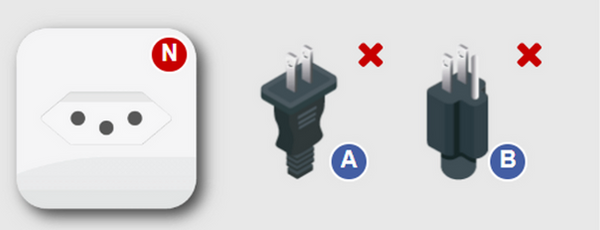




Tips for Traveling in Brazil
GENERAL INFO AND TIPS
You are coming to a vibrant, welcoming, and diverse country. You can visit different types of biomes (including the Amazon Forest), amazing beaches, incredible cities and towns. You can explore a continental-size country with so much cultural diversity and delicious cuisine (or cuisines, as it's different in different parts of the country).
Bear in mind, though, that Brazil is a developing country and has its challenges. In this section, we offer some tips on how to better navigate your trip, starting with some peculiarities:
Do not drink tap water. We advise you to either drink filtered water (you can find filters everywhere and even the "água da casa," the free water in restaurants, is filtered water) or mineral bottled water.
Do not toss toilet paper or any other piece of trash in the toilet. The plumbing system is not that great and you can end up with a clogged toilet. Better to avoid that and toss the paper in the bin that is next to the toilet.
Do mind your surroundings and watch out. Security can be an issue in Brazil but avoiding bad areas, using common sense, and being street smart can help you stay away from trouble.
LANGUAGE
Which language is this? Is this Spanish?
People in Brazil speak Portuguese (not Spanish as many people might think).
Due the size of Brazil, there are different dialects (especially the accent and some words), but the language is the same and understood by all Brazilians.
One thing that works everywhere is a “thumbs up.” It’s used ubiquitously and can mean “thank you,” “yes, thanks,” “no thanks,” “goodbye” (especially if combined with saying “tchau”), and of course “no problem” and “all good.” Use it as often as you can.
English? Do not expect people to be able to speak (good) English outside of airports and hotels. But people are normally very kind to try to understand what you mean, and they will try to help, even if they do not speak the language.
If you’d like to learn something before the trip, you can also find some important phrases here.
VOLTAGE
What is the voltage in Brazil? Do I need an adapter?
Unfortunately, the answer isn’t so simple. First, the outlets used in Brazil are type N—this means your US or EU plugs are unlikely to work, so you will need a plug adapter.

The voltage in Ceará is 220 volts. Most electronics you will bring to Brazil are probably dual voltage (e.g., cellphones, laptops), meaning you can plug them into the wall with only a plug adapter.
GETTING MONEY
What money is used in Brazil?
In Brazil, the currency is Brazilian Real (Reais, in the plural).
1 USD = 5.44 BRL (October 2024)
1 GBP = 7.21 BRL (October 2024)
How can I get Reais?
You won’t be able to pay for anything in Dollars or Euros in Brazil, but there are exchange counters in airports, big shopping malls, and many big hotels (though it’s not common to see exchange shops in the middle of the city). You will likely get the best exchange rate withdrawing money from ATMs, particularly inside the airport.
Can I use my credit card?
Credit card are accepted almost everywhere in big cities, but for small restaurants and shops it’s better to ask beforehand. Smaller restaurants and stores will probably not accept Amex.
To buy something from a street vendor or on the beach you’ll almost always need cash (they also accept "PIX," which is the Brazilian version of VENMO. But to use that, you need a Brazilian bank account).
